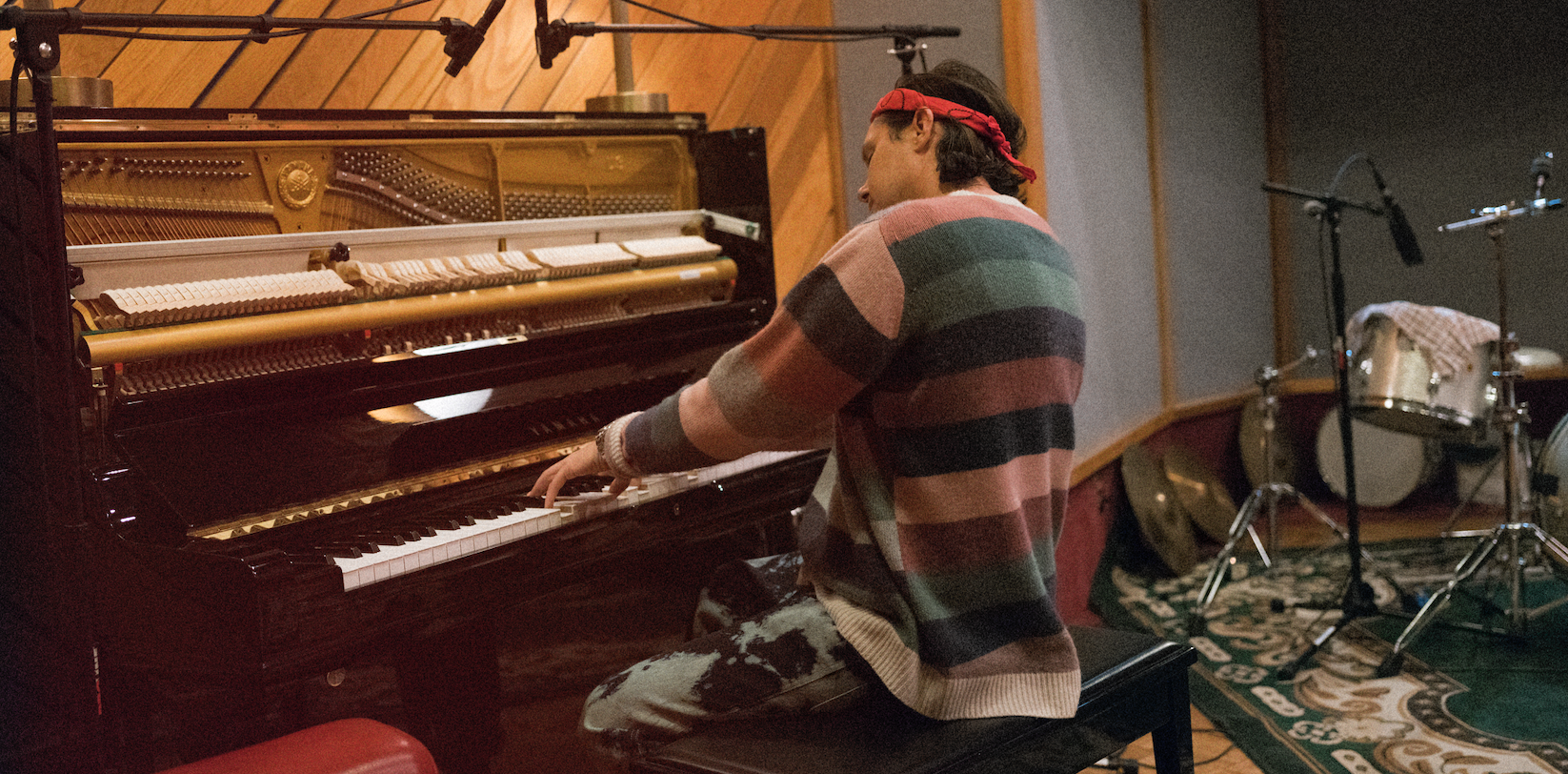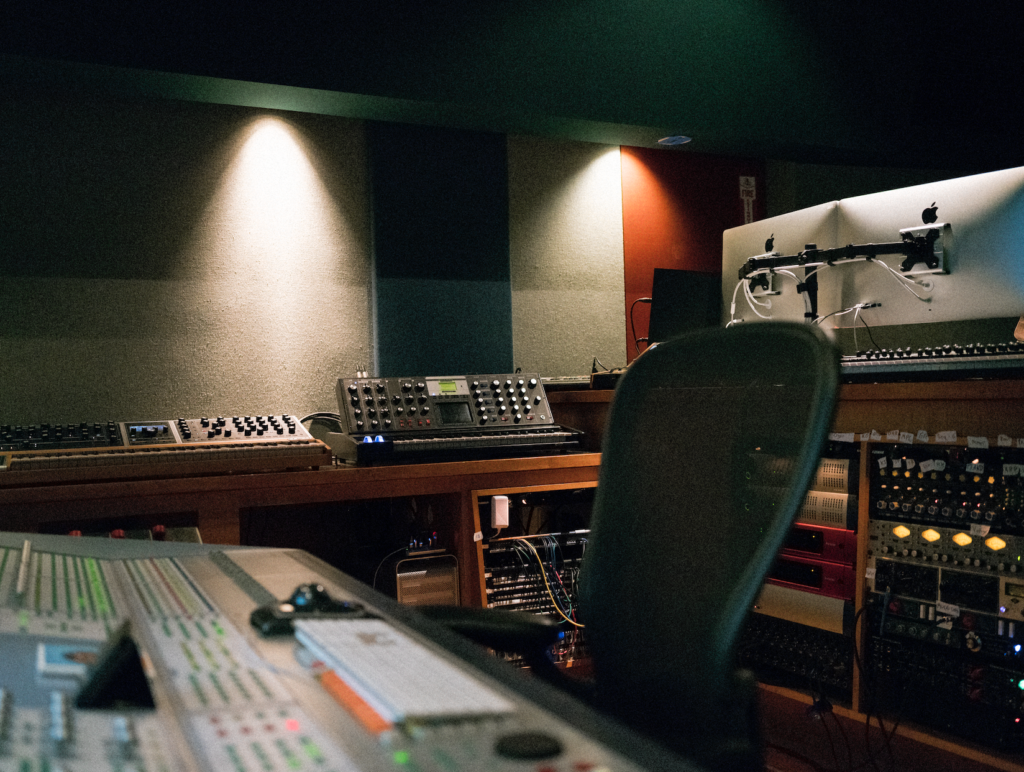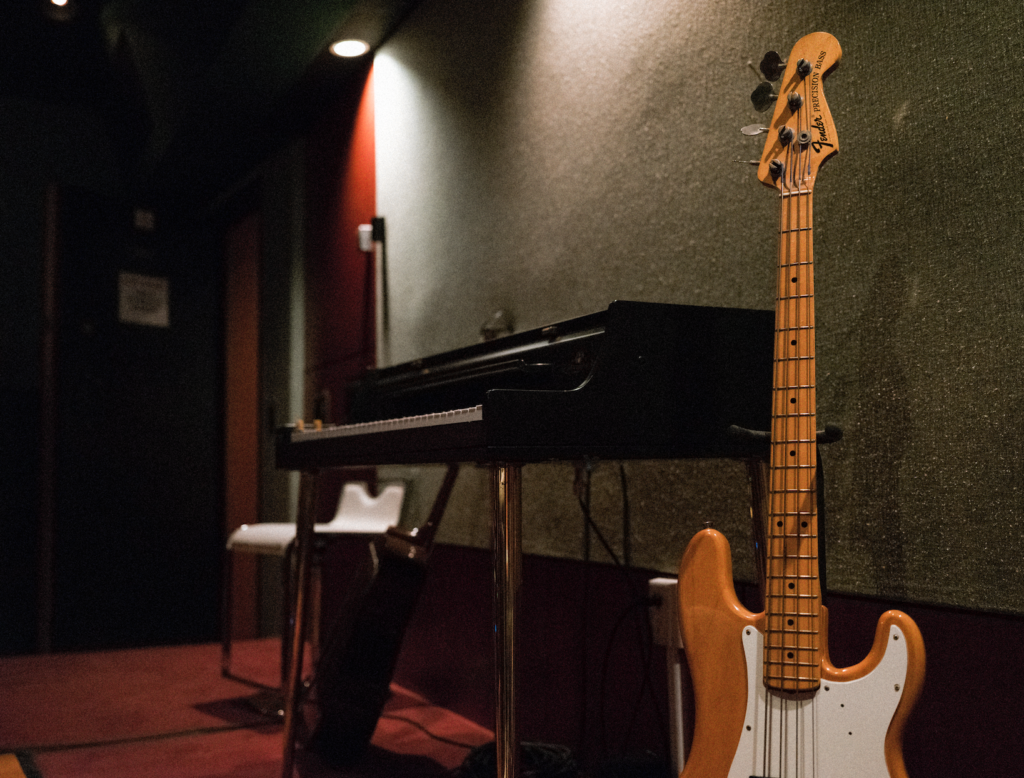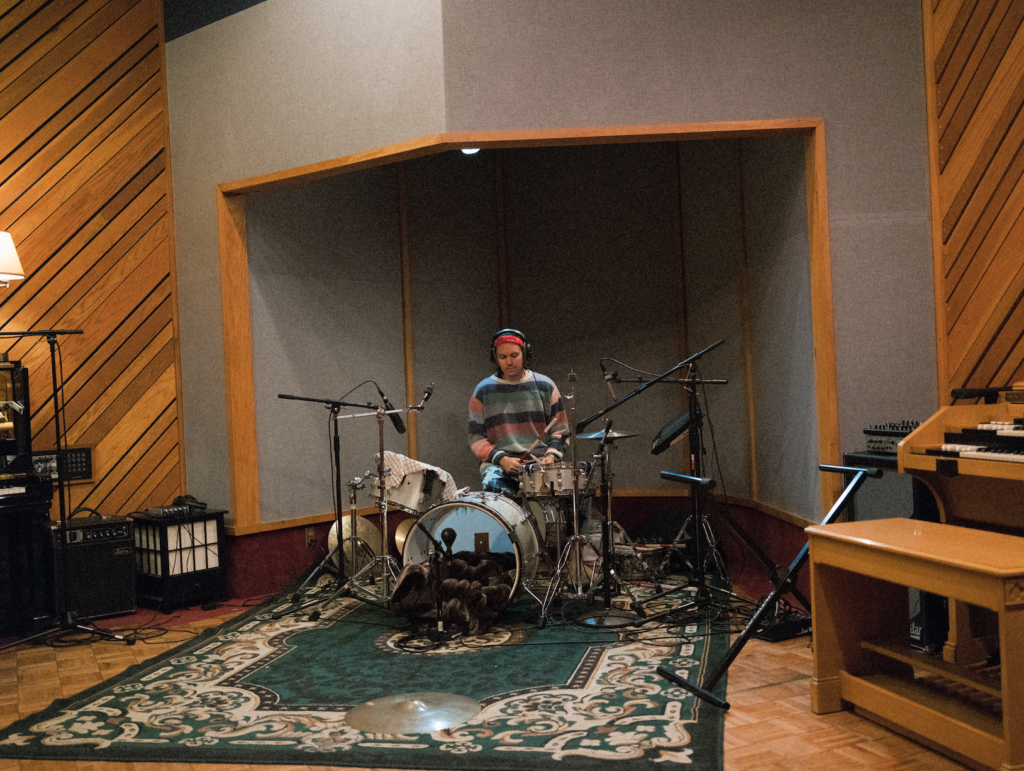Artist Tips: Rhye
How to find emotion in song-writing.

Artist Tips: Rhye
How to find emotion in song-writing.
Mike Milosh’s Rhye project began in 2012, initially alongside Danish producer Robin Hannibal, who quietly left in 2017 following the duo’s debut album, Woman. With much anticipation, Milosh returned last year with a new album, Blood, released via Loma Vista. The Canadian musician’s autonomy did little to amend his project’s aesthetic, although the subject matter had shifted considerably: whereas Woman, deeply moving, served as an ode to Milosh’s then-wife, Blood centered on his new girlfriend, and in doing so he captured the subtle sentiments of new romance that we’re often so often hesitant to exhibit. In recording, Milosh also amended his practices, opting for live instrumentation and minimising the use of his computer.
Of Milosh’s earlier work, “The Fall” and “Open,” standouts still today, are particularly poignant, but much of the catalog is almost impossible not to love. Essentially, it’s an intense and sensual take on R&B, built on a minimal framework carefully designed so as to not pollute the purity and vulnerability in Milosh’s message. “Song For You” is a preciously delicate song that captures that feeling of falling in love; “Please,” slightly more uptempo, purveys a sense of longing that we’ve all felt: rarely does music sound so emotional without feeling cheesy; and rarely does an artist achieve this with such unwavering consistency. In light of Spirit, and eight-track outing of piano-based songs, Milosh connected with XLR8R to explore some secrets in capturing emotion in sound.
Authenticity Means Emotion
My lyrics always come from a moment in my life that has moved me, let it be intense, sad, joyous, sexual, etc. I rarely reveal the personal underpinning for a song I’ve written because I want the listener to have their own personal experience with the music. However, I will say in this case that “Patience” was born from me being in a lot of hotels, and feeling alone while away from my girlfriend. What I’m trying to say is: Even though we’re not together in this moment, I’ll bring back the goods; I am doing this for you. This lack of time we have together is not just to neglect. These are the feelings I want you to understand. Most of my songs have a similar emotion behind them, but sometimes it’s more specific, and these feelings can be positive or negative.
I’ve learned that truth carries a resonance that no amount of gear or studio wizardry can make up for. You have to sing from an open heart; an authentic space. Everything you add to a song, or take away in some cases, should be in honor of that particular feeling you have in the song. To put it differently: the only way to move people is to be authentic and write things that move yourself; you have to feel, to let emotion and music come out of you with no judgement or pre-prescribed goal. I love the term “letting” as a mindset when recording: it allows me to let go of myself completely to trust in the process of creating a new song.
There’s no map for this, and, to be honest, it’s just something you feel in the writing process, but every part of a song should be almost asked to be there by the song itself. You cannot have a methodology behind it; you just have to be in your feelings. It’s really about connecting music to reflect what you’re feeling.
I’m now at the stage where when I’m in the studio I just turn on; I’m there because I am driven to do music, and the things that are happening in my life naturally fall into the context of the song. The feeling or emotion is always there, and I’m recording the song while I am in the feeling, so it reflects something that feels tangible at that particular moment. It’s not like I am a poet reflecting on an emotion I had a year ago. That would be different. In truth, I actually have to make sure that there is not too much of a disconnect between the emotion and capturing it in a song.
Looking at it now, I think that as soon as I begin singing then I have this feeling, or this emotion. Objectively speaking, I would say there’s a strong connection with how my voice opens up my feelings. My voice reacts to my feelings, and then my feelings react to my voice, and I consider myself extremely fortunate in this way.
I would also add that this can become more difficult as success comes, but I ensure that the people around me can appreciate the difference between commerce and art. There are some songs that I don’t put out because they don’t always feel authentic; and not being signed to a major label does help me because there is not so much pressure to release music all the time.
Intention is Key
This is linked to the above. Outside of sonics, I think the most important part about making a song, especially in regards to emotional resonance, is intention. I don’t make songs by design to make a “hit” or to please anyone. I don’t construct tunes as a job. I am compelled to make music because I personally not only love expressing emotion through sound, but I am compelled to. Nothing should be in there just for show.
You know when a song is finished because it becomes something onto itself, a little universe that seems to make sense all on its own. If a song doesn’t change the way people breathe the first time they hear it (be it in a controlled, appreciative environment) then the song wasn’t birthed properly.
I always know a song is complete because I get this tingly feeling at the back of my head, going down my spine, and onto my skin. When I’m recording, I always do strings last, and I won’t go into this moment until I feel completely satisfied, in the same way that you do from really good food. I also recognise that this isn’t an intellectual decision: it just feels completed, without me having to analyse it. I have lots of music that I don’t release because I have to be strict about what really moves me.
On top of this, I also think it’s important to play around in the studio, without any intention to finish a song, or write something new. I always spend the first 90 minutes in the studio writing something new because I like what it does to my mind creatively, and I don’t think I’ll ever send all those ideas to people. A lot of the time I am just doing things just to experiment with the sonics of something. Like, recently bought this thing called the Culture Vulture, and I’ve just been experimenting with it to see what it can do to the sound of snare drum. I’ll spend hours making a beat and then putting this through the Culture Vulture, knowing that I am not making a song yet. I am doing it to understand the sounds available to me, and then I will use that sound because I recognise it will compliment the song if I have it sound like that.


Get your studio layout right
The only way emotion can flow out of you is if your studio is set up properly to create this flow. I now have all of my keyboards facing in the direction completely opposite to any computer screens. Before Blood, I had a realization that the way in which music software is laid out is inherently linear and rigid, and this really fosters a musical creative intuition and takes you away from intellectual analysis. So I made these changes to ensure that I am not looking at a computer screen when I am making music.
This is actually super important to me. It became apparent to me after I had written four electronic records as Milosh, which were about the fine detail and editing. I realised one day that this had taught me to really think about music in this linear format; all DAW’s have the same concept, in that you start at the left side and end at the right. I felt constrained by this, because really in music there are infinite possibilities and you have to break free of this practice to really experience more. What’s more is that it trains your thinking, and I can avoid this by having all my keys facing away from the monitor, in like an L shape, so that I cannot even see the screen. This allows me to go into my mind, and into my body; it allows me to flow, kind of like when you’re recording an instrument, like the drums or the piano: you’re never looking at the screen. Now I am no longer thinking about my music as an electronic composition that has a beginning and an end; I am now thinking about my music differently. What does it feel like? Does it feel long enough? How does it make me feel? This allows me to judge my music based on feelings above everything else.
Naturally, this also helps me to convey emotion. Sound, when you’re making music, is supposed to be a representation or a translation of the things you’re feeling when you’re making a song, and when you’re no longer caring about the format it’s recorded in, and you’re just caring about the sound itself, you’re really connecting with that particular instrument in a whole new way.
To give an example: on this latest album, I used the Moog One, a really complicated synthesiser. You have to surrender to it, and then when you get to know it, then it can become a vehicle for your actual emotions, and that takes letting go; it takes listening, closing your eyes, and feeling. You just cannot do this if you’re always looking at a screen.
Match your equipment with the sound you’re looking to create
You have to match your equipment with the sound you’re going for in any particular song. Gear and the recording process in general is somewhat of a dark art, but making time to experiment is very important, with no judgment as to what you are creating. You need to remember that the way you are using certain things will affect the tonal quality of what you are creating, and also your performance within the environment you are creating for yourself. I’ve been experimenting with sonics for 20 years, and I’ve reached a place where I know what I like with my particular music; and, in particular, about what works with my vocals.
To give an example: for drums, I pretty much swear by this general technique: a car cleaning shammy on the snare, minimal mics (three maximum), and then everything re-routed (post performance) through a Chandler Curve Bender and then lightly touched with compression using a Chandler TG1. I want that dial barely moving. I also don’t hit the drums very hard; instead, I hit them lightly but with a bigger stick. I like this because I am looking to be soothed by the drums, comforted even. There’s no emotional resonance when you’re hitting the drums hard. If a snare hit has me blinking every time it comes out of the speaker then I know something is wrong. I also ignore logic when EQ’ing with the curve bender, and just let my ears and intuition guide me.
Also, on the piano, I always have mute because I don’t want it to sound triumphant. This is not a feeling I want to convey in the music that I make. I like when strings sound gentle. I have different mics recording the piano so I can capture different elements. I want the piano to soothe you, to gently envelope you, rather than having you turning it down because it sounds shrill.

Mic technique is more important than compression when it comes to vocals
Mic technique is more important than compression in the early stages of a vocal take. I actually feel compression early on in the recording process clamps your performance, and you end up fighting for the right emotion rather than “letting” the emotion fall out of you. It also chokes me a little bit; I feel like I’m under a blanket, so I naturally begin to push in an attempt to conquer the compressor.
Because of this, I record with no compression, and I focus on not pushing. I record my vocals on two different microphones depending on the song: an old U67 Neumann, and a new Bock 241. I never sing directly into a microphone, because I like the tone that it captures when I am at a 45-degree angle to it. This works for me, but it might not work for other people.
I only add compression after the takes. But I am basing it on what the take sounds like rather than being married to this compressor. I feel strongly about this. I do sometimes run by vocals through a Manley Vox box, but again with very, very minimal compression, if any.
Looking at it, I only really use compression on the drums and as an effect, for example on a synth line. This allows me to create a rainbow of sounds that add up to make a song.
‘Spirit,’ Rhye’s latest album, is out now, a piano-focused LP that captures the subtle magic of gentle moments. You can order it HERE, with “Malibu Nights” streaming below.
All photos: Mike Milosh

